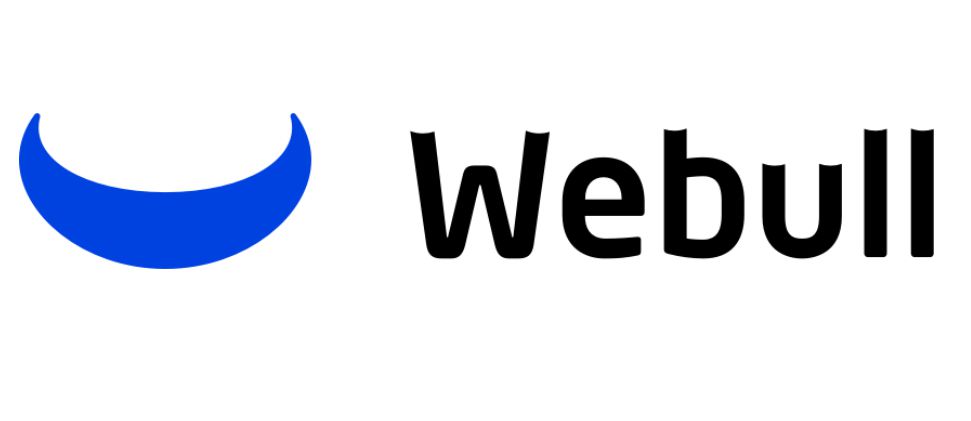Acorns is a popular investing app for beginners. It works by rounding up your spare change and transferring the money into an investment account. It's a great way to get started investing.
However, due to its relatively high fees and limited investment options, it may not be the best long-term investment platform.
Thankfully, there are several apps like Acorns that make it easy to invest small amounts of money with potentially no account service fees. Each platform shares many of Acorns' best features but may better fit your investment goals and personal preferences.
| Best For | Learn More | |
|---|---|---|
 | Free Managed Portfolios | Learn More |
 | Spending Round-ups | Learn More |
| Customized Portfolios | Learn More | |
| Tax Optimization | Learn More | |
| Fractional Investing | Learn More | |
 | Stock Research Tools | Learn More |
SoFi Invest
Best For: Free Managed Portfolios
Automated Portfolios: Yes | Round-ups: Yes | Minimum Investment: $1
➕ No account service fees
➕ Automated and self-managed investing accounts
➕ Invest in stocks, ETFs, and options
➕ $1 minimum investment requirement
➖ No tax-loss harvesting or spending round-ups
➖ Limited trading tools
➖ No cryptocurrency trading
➖ No shopping rewards portal for extra investment contributions
Monthly Fee: $0
SoFi Invest offers free automated investing and self-managed accounts. The minimum investment is $1 for SoFi Automated Investing and $5 for Active Investing accounts. Both services offer taxable brokerage accounts and IRAs.
You won’t pay any advisory fees or trading commissions on the automated portfolios, which is somewhat rare. With that said, paid robo-advisors are more likely to offer tax-loss harvesting and in-depth financial planning tools that become more valuable as your portfolio value increases.
Investing Features
Like Acorns, you'll determine your risk tolerance and planned withdrawal date to get a recommended asset allocation. This robo-advisor will invest in diversified stock and bond index ETFs with an aggressive, moderate, or conservative risk strategy. Your portfolio automatically rebalances.
The automated portfolios don’t incur service fees like most robo-advisors, but you miss out on some premium features like spending round-ups and tax-loss harvesting. You can still schedule recurring investments and reinvest your dividend income.
You can also open an Active Investing account to buy individual stocks, ETFs, and trade options. There are no trading fees and you can buy fractional shares of any stock or ETF with a $5 minimum investment.
Banking Features
Just like Acorns offers an online checking account, you may also consider a SoFi Checking and Savings account. This free banking account earns a competitive interest rate, supports unlimited transactions, and allows you to round up linked debit card purchases that are deposited into a Savings Vault.
If you’re a loyalist, look into the SoFi Member Rewards program. You can earn points that you can convert into cash with a banking or active investing account. Members can also enjoy complimentary career counseling and financial planning sessions.
Pricing
SoFi Invest doesn’t charge any monthly service fees or trading commissions. There are several SoFi promotions to scoop up bonus cash by opening new investing and banking accounts.
SoFi Invest vs. Acorns
Both SoFi Invest and Acorns offer managed ETF portfolios with automatic rebalancing, but Acorns charges a monthly fee between $3 and $9. SoFi Invest has a $1 minimum investment, while Acorns won’t invest until your cash balance reaches $5.
SoFi allows you to manage your portfolio and offers more investment options. However, Acorns is better if you have trouble finding extra cash to invest each month and are happy to invest in ETFs.
While SoFi stopped offering crypto trading at the end of 2023, the app offers select alternative investments, mutual funds, and money market funds for more diversification opportunities. Further, you can still get exposure to cryptocurrency through Bitcoin-linked ETFs (similar to Acorns crypto investment options).
Stash Invest
Best For: Best for Spending Round-ups
Automated Portfolios: Yes | Round-ups: Yes | Minimum Investment: $5
➕ Managed and self-managed portfolios
➕ Earn up to 3% stock back on debit purchases
➕ $5 minimum investment for stocks and ETFs
➕ 30-day trial period
➖ Only the Stash+ premium plan earns stock rewards
➖ Fewer automated portfolio strategy options than Acorns
➖ No tax-loss harvesting
➖ No free plan
On many fronts, Stash Invest is the most similar Acorns alternative. You can invest your spare change by using Stash's Stock-Back Card. This card can also earn up to 3% back in fractional shares of stock. It's like a cash-back card, but you earn stock instead of cash.
With Stash, you will also get an automated portfolio that is designed based on your goals and risk tolerance. Further, you have the option of making a self-managed stock portfolio.
Investing Features
All users have access to self-directed or managed investment accounts.
The automated account holds stock and bond index funds, and the allocation depends on your risk profile. It will automatically rebalance as funds are added to or removed from the account. The minimum investment per transaction is $5.
In the self-directed account you can buy individual stocks and ETFs. You determine the asset allocation and the rebalancing of the account. There is unlimited trading by satisfying the $5 minimum investment. The app has a basic stock portfolio analyzer to provide insights to improve asset allocation and minimize risk.
Both Stash and Acorns have a lot of content for new investors to learn about investment choices and how to invest. On Stash, these short articles and videos tend to be more in-depth than other micro-investing apps.
Banking Features
Members have access to an FDIC-insured online banking account that lets users receive direct deposits up to two days sooner. If you take advantage of this perk, you'll get the Stock-Back debit card, which enables you to potentially collect investing rewards.
The Stash Stock-Back Debit Mastercard Stash+ members ($9/month) earn up to 3% back in stock on purchases. For example, you receive partial McDonald’s stock shares when you visit the fast food chain or Starbucks stock when grabbing a coffee. You'll obtain an index ETF share when you shop at merchants that aren't publicly traded, like your local bakery.
This rewards debit card also supports round-ups by investing your spare change. The price difference debits from your Stash banking account. This strategy is an effortless way to automatically invest each time you shop or pay bills to plan for long-term goals.
Pricing
There is no free plan and users must choose from two paid options:
- Stash Growth ($3/month): One Smart Portfolio, one Personal Portfolio, and debit card (without Stock-Back purchase rewards)
- Stash Plus ($9/month): One Smart Portfolio, one Personal Portfolio, two custodial investing accounts, earn 1% back on Stock-Back debit purchases, and Stash+ market insights.
Both plans offer the first month free so you can try it out.
Consider the premium plan when you want to open investment accounts for two children or the ability to earn stock on debit purchases. Otherwise, the entry-level plan is good if you simply want a personal and managed brokerage or retirement account.
Stash Invest vs. Acorns
Consider Stash Invest for investing in individual stocks alongside a managed portfolio. Premium Stash+ users may also appreciate earning up to 1% back in stock rewards on qualifying debit purchases.
While both investing apps have many overlapping traits, Acorns tends to have more automated investment strategies. Hands-off investors can add socially conscious ESG portfolios and Bitcoin-linked ETFs, while Stash portfolios typically stick to traditional index ETFs based on the company's market cap. Acorns also offers three plans which provide one more option to get your desired banking and investing features at an affordable monthly price.
Read our Stash Invest review for more.
M1 Finance
Best For: Customized Portfolios
Automated Investing: Yes | Round-ups: No | Minimum Investment: $100
➕ Numerous investment options, including model portfolios
➕ Dynamic rebalancing can reduce taxable events
➕ No monthly service fees or trading commissions
➖ Not a fully-automated robo-advisor
➖ Relatively high minimum investment ($100 for brokerage accounts and $500 for IRAs)
➖ Doesn’t reinvest dividends
➖ Crypto trading requires an M1 Plus paid membership
Monthly Fee: $0 or $3
If you are interested only in micro-investing, then M1 might not be your best choice, as it requires $100 to start and $25 minimum contributions. It doesn't offer a round-up feature, which is a core feature of Acorns.
However, M1 Finance lets you incorporate a wide variety of expert-made model portfolios (known as “expert pies”) along with individual stocks and ETFs. You self-manage the portfolio by adding investment options and assigning a target percentage. With each new investment, the hybrid robo-advisor buys shares to keep each position at its target allocation.
Investing Features
Your portfolio at M1 is called a “pie” and you can make your own pie, or choose from a variety of pre-made pies. It doesn’t offer fully-managed portfolios, so you must determine your risk tolerance and find model portfolios that match your objectives. This requires a little more effort, but there are many investment options and the platform is user-friendly.
The model portfolios provide exposure to a variety of investment strategies, including:
- General investing based on risk tolerance (these funds are similar to the standard Acorns index ETF baskets)
- Retirement target dates
- Socially responsible investing
- Stocks and bond ETFs (i.e., 80% stocks/20% bonds, 60/40, 30/70, etc.)
- Income-focused
So, if you’re comfortable managing your own portfolio, you can choose one of the Expert Pie model portfolios with an asset allocation similar to what Acorns recommends — or build your own. Then, you can have a similar investing strategy to your portfolio at Acorns, but you avoid the monthly fee.
But of course, you don't need to do what Acorns says, you can also add over 6,000 individual stocks or ETFs to personalize your portfolio. Premium M1 Plus members can build a cryptocurrency portfolio that is separate from their investing pie. Free members can only invest in crypto through crypto-linked ETFs and stocks.
M1 rebalances your portfolio when you purchases shares of your pie. The money you contribute is used to buys assets that are below their target asset allocation percentage. However, M1 won’t sell overallocated shares unless you request a manual rebalance. While it’s not a true-to-form automatic rebalancing, selling less frequently creates fewer tax-reportable events that can be a pain to include on your income tax return accurately.
Creating your portfolio is free, but you must deposit at least $100 into taxable accounts and $500 for retirement accounts to make your first trade. After that, the minimum investment is $25 although the investing app spreads these funds across your portfolio by purchasing fractional shares with a minimum $1 order size per position.
Banking Features
This platform also offers margin loans and a co-brand rewards credit card. These features can help members with sizable portfolio values manage their finances with enhanced flexibility.
M1 Finance also offers a high-yield savings account and Plus members can earn the most competitive interest rate.
Pricing
The primary M1 platform is free and is sufficient for most investors. You have access to all the stock and ETF investment options. All trades execute during the morning trading window which opens at 9:30 a.m. Eastern.
An optional M1 Plus membership costs $3 monthly and comes with a three-month free trial. If you decide to upgrade you'll get access these extra investing and banking perks:
- Afternoon trading window (for accounts with $25,000 or more)
- On-demand crypto trading (Bitcoin, Ethereum, and Litecoin)
- Custodial accounts
- Discounted margin loan interest rates
- Up to 10% cash back at select merchants the Owner’s Rewards Card credit card and 1.5% cash back on everything else
M1 Finance vs. Acorns
M1 Finance is the clear winner when you want to self-manage your portfolio or dabble in individual stocks and ETFs. As your investment experience increases, this flexibility can make M1 a better long-term investing option than Acorns.
Several risk-based and ESG-friendly model portfolios can easily substitute for Acorns premade portfolios that let you invest for free. You can also get direct access to heavily-traded crypto tokens instead of indirect exposure through cryptocurrency ETFs.
Acorns remains better than M1 when you want a fully automated experience, as it will recommend an asset allocation. It will also sell shares as necessary to rebalance. Finally, it’s easier to round up purchases or earn cash back to find more money to invest.
Read our M1 Finance review for more.
Betterment
Best For: Tax Optimization
Automated Investing: Yes | Round-ups: No | Minimum Investment: $10
➕ Fully-automated portfolios
➕ Offers tax-efficient investing strategies
➕ Financial advisor access
➕ Free banking and cash management accounts
➖ No free investing accounts
➖ Doesn’t offer individual stocks or ETFs
➖ Small portfolios may not benefit from tax optimization strategies
Investing: $4 per month, switches to 0.25% annually if you have $250 in recurring deposits or your balance is over $20,000.
Crypto: 1% annually, plus trading fees
Betterment will walk you through an assessment to determine your asset allocation, which will be based on your risk tolerance and goals. The platform will then manage your account on your behalf to maintain your target asset allocation, there is no option to self manage.
Also, there is no minimum deposit requirement to open an account but the minimum contribution amount is $10 when you do start investing. It does not offer a round-up feature.
Betterment offers tax-efficient investment portfolios and financial advisor access. Acorns offers neither feature, beyond the ability to invest through a traditional or Roth IRA.
Investing Features
It’s free to join and complete a basic questionnaire to determine your risk tolerance and recommended portfolio allocation of index ETFs. The minimum investment is $10 and it will buy fractional shares upon account funding.
While you’re limited to ETFs, there are several portfolio strategies to choose from:
- Core: Classic stock and bond index investing based on your risk tolerance
- Socially Responsible: Broad impact, climate impact, and social impact portfolios
- Innovative Tech: Funds focusing on high-growth potential companies in the tech sector
- Goldman Sachs Smart Beta: ETFs that invest in companies with the potential to outperform benchmark index funds but can carry more volatility
- Value Tilt: Domestic and international index ETFs that emphasize exposure to undervalued companies. It practices value investing instead of growth investing.
Betterment's unique feature is tax effeciency. The service automates these tax-efficient investing strategies:
- Tax loss harvesting: Sell securities for a loss to reduce ordinary income by up to $3,000 per year.
- Tax coordination: Places tax-efficient investments in taxable brokerage accounts and the high-tax assets in a traditional IRA or Roth IRA.
- Prioritized selling: The app strives to sell holdings with the lowest tax burden firstduring rebalancing. It will forecast the potential tax implications before selling or withdrawing. It can also assist with charitable donations.
You may also enjoy the ease of hiring a financial advisor through the platform. One-time advice packages cost between $299 and $399, while Betterment Premium members enjoy on-demand sessions.
Banking Features
You can open two banking accounts at no extra cost to easily access direct deposits, pay bills, and fund your investment portfolios. Potentially surprising, you can open these accounts even if you don't want to invest with Betterment.
- Betterment Cash Reserve: This high-yield cash management account supports unlimited withdrawals, setting multiple savings goals, and provides up to $2 million in FDIC insurance benefits (up to $4 million for joint accounts).
- Betterment Checking: This free checking account earns debit card rewards with select merchants and provides up to $250,000 in FDIC coverage. It also waives all ATM fees and foreign transaction fees.
Learn more with our Betterment Checking and Savings review.
Pricing
All users pay a fee to invest through Betterment, but its banking products are free.
The service fees vary by account type:
- Investing accounts: $4 monthly fee that switches to a 0.25% annual fee if you have at least $250 in recurring monthly deposits or have a minimum $20,000 combined balance across all Betterment account types.
- Premium: Memberships require a $100,000 investing balance or higher by charging an additional 0.15% annual fee for a 0.40% total annual advisory fee. This membership tier includes unlimited financial guidance from a CFP.
- Crypto: 1% annual fee plus trading fees through Gemini
- Cash Reserve: None
- Checking: None
Deposits in your Cash Reserve and Checking accounts can help you switch to the 0.25% advisory fee sooner for your investing account.
Betterment vs. Acorns
Betterment offers more automated investment tools like tax-optimized investing that can help established investors. At the same time, Acorns tends to incentivize beginners to get into the habit of consistent investments through spending round-ups and online shopping partners.
It’s also possible that Betterment has more investment portfolio options, although Acorns offers core index funds, ESG strategies, and Bitcoin-linked ETFs to cover most of the bases.
The fact that Betterment offers free checking and savings accounts is also a nice touch.
The pricing is a toss-up with small account balances. Upon reaching a $20,000 combined Betterment account balance, the 0.25% fee can be higher than a flat monthly fee. You must decide if the tax optimization features and additional investment tools are worth it.
Read our Betterment review for more.
Robinhood
Best For: Best for Fractional Investing
Automated Investing: No | Round-ups: Yes | Minimum Investment: $1
➕ $1 fractional investing
➕ Trade stocks, ETFs, options, and crypto
➕ Taxable and retirement accounts
➖ No robo-advisor portfolios
➖ Minimal research tools
➖ No financial advisor access
➖ Other brokers don’t charge for similar Robinhood Gold benefits
Robinhood offers free micro-investing with a $1 minimum investment. You can trade stocks and ETFs, but won’t get expert-made model portfolios or a robo-advisor like the other apps like Acorns we mention. However, it has an easy-to-use web and mobile platform for investors of any experience level.
You can opt into the Robinhood Cash Card, which can round up your purchases and put your “spare change” into Robinhood to be available for investing. You'll still need to choose your investments, however.
This platform provides ample flexibility with investment choices and market order types that can benefit short-term traders and long-term investors.
The Robinhood promotions can help you get free stock and bonus cash.
Investing Features
The micro-investing app lets you buy stocks and ETFs with as little as $1. Robinhood is also an excellent option for penny stocks, which many competing platforms don’t offer. It’s also possible to trade over a dozen crypto tokens with no minimum investment, although availability varies by state. The app lets you transfer positions to other crypto wallets for self-custody.
In addition to market orders that buy or sell shares at the current price, you can place limit orders and other advanced order types to pinpoint a specific entry point to time the market.
You can also trade stock on demand instead of being bound to a once-daily trading window.
This platform’s stock research tools are a tad more in-depth than some of the other Acorns app alternatives mentioned on this list but are still limited to basic charts and fundamental data. I suggest using a stock research website for versatile analysis and stock screener ideas.
Active traders may consider upgrading to Robinhood Gold ($75/year), which provides Nasdaq Level II market data, Morningstar insights, reduced margin interest rates, and higher instant deposit limits. However, you still lack advanced charting tools and simulators that discount online brokers are more likely to offer.
Robinhood is safe, but the platform has a checkered past that has inspired the platform to improve investor protections to prevent risky trades. Like other apps on this list, investment accounts are eligible for up to $500,000 in SIPC insurance if the platform halts operations.
Banking Features
You can open a free spending account with up to $250,000 in FDIC coverage. Customers can request a free Robinhood Cash Card for deposits and purchases or free in-network ATM withdrawals. It’s a Mastercard debit card.
Cardholders can use the Cash Card at participating merchants and earn cash back to invest in stocks or crypto. You can opt to round up all card purchases to the nearest dollar.
Pricing
Robinhood offers free stock trades, ETFs, crypto, and options (excluding contract fees). The barebones platform is excellent for most traders and long-term investors. The Robinhood Cash Card and accompanying spending account are free, too.
The optional Gold program is ideal for active traders and savers with a notable cash cushion. The first $30 days are free, and then it costs $5 month-to-month. Robinhood Gold benefits include:
- Advanced market data (Nasdaq Level 2 and Morningstar Insights)
- Instant Deposit limits of up to $50,000 per day
- Lower margin interest rate
- 3% IRA match
- High-interest cash sweep account
- Up to $2.25 million in pass-through FDIC Insurance
Robinhood vs. Acorns
Robinhood is generally one of the first investing apps people use to invest in stocks and options. Conversely, Acorns is one of the first apps for new investors wanting hands-on help by investing in index funds and prebuilt portfolios.
Ultimately, the better platform depends on your desired investment options and if you’re comfortable self-managing your portfolio.
If you want to avoid Acorns’ account fees, it’s possible to build a similar ETF portfolio through Robinhood. The $1 fractional investing minimum makes pinpointing your target asset allocation easy, although you’re responsible for rebalancing your portfolio at suitable increments.
Both can round up your debit card purchases and use your change for investing. But it's more difficult with Robinhood as you'll have to use the Robinhood debit card, and the money transferred automatically isn't actually invested. You'll still need to log into the app and choose your investments.
Read our Robinhood review for more.
Webull
Best For: Stock Research Tools
Automated Investing: Yes | Round-ups: No | Minimum Investment: $5
➕ Impressive investment research tools
➕ Commission-free stocks, ETFs, and options
➕ $5 fractional investing
➕ Self-directed and automated portfolios
➖ No tax-loss harvesting
➖ Limited banking features
➖ Other robo-advisors may offer more financial planning tools
➖ $100 account minimum for Webull Smart Advisor managed accounts
Monthly fee: $0, optional $2.99 per month for upgraded reporting
Webull is a highly functional stock trading platform with an impressive array of free research tools, such as advanced charting and a paper trading simulator. Automated portfolios are also available if you want some or all of your investments to have a hands-free experience.
Investors can enjoy commission-free trading, $5 fractional stock or ETF shares, and a high-interest cash management account too.
In addition to a web and mobile platform, users can download a free desktop app. This software can be a boon for active traders.
Investing Features
You can purchase stocks and ETFs with as little as $5 per trade. Options and OTC stocks are available as well. Equity options don’t incur commissions or contract fees.
Margin trading with competitive interest rates is available to all users without joining a premium program, as some free investing apps require.
Webull is one of the few apps you can confidently research and trade stocks using the same platform. For instance, you can read stock charts using over 50 advanced technical indicators and 12 charting studies.
Active traders can paper trade stocks and options to test various strategies with unlimited virtual cash. This simulator sources real-time data along with hands-on upper and lower technical indicators.
The platform’s free stock screener can identify potential investments, and you can dig deeper with fundamental or technical data. Optional Nasdaq TotalView Level 2 data is available at extra cost if you need it.
While Webull primarily caters to self-directed trading, it recently launched automated portfolios. Webull Smart Advisor assesses your risk tolerance to suggest a personalized portfolio of stock and bond index ETFs. The minimum investment is $100.
For the automated portfolios, you won’t pay advisory fees for the first six months; after that you'll pay a 0.20% annual advisory fee.
Before opening a trading account, check out the Webull promotions to earn multiple free stock shares.
Banking Features
The Webull High-Yield Cash Management Account charges no monthly service fees or minimum account balances. Customers can be eligible for up to $1 million in FDIC coverage thanks to several partner banks holding customer deposits. Uninvested cash in your brokerage account sweeps into this account, too, which helps you earn more interest.
There are no monthly withdrawal limits, although you won’t receive a debit card like some online banking accounts offer.
Pricing
It’s free to join Webull, and there are no trading commissions on most products or minimum account balances.
One add-on fee worth noting is paying $2.99 monthly for Nasdaq Level 2 data feeds.
Webull vs. Acorns
Webull lets you create self-directed and automated trading portfolios, while Acorns only supports ETFs. Additionally, Webull charges a 0.2% annual advisory fee, which can be more affordable than the Acorns fixed price when you have a small portfolio value.
If you want to invest and bank with the same platform, Acorns can be better as you get a debit card and can earn investing rewards on qualifying purchases.
You may also enjoy our Webull vs. Robinhood comparison for an apples-to-apples evaluation.
Read our Webull review for more.
| Monthly Fee | Minimum Investment | Round-ups | Automated Portfolios | |
|---|---|---|---|---|
| Acorns | $3, $5, or $9 | $5 | Yes | Yes |
| SoFi Invest | $0 | $1 | Yes | Yes |
| Stash | $3 or $9 | $5 | Yes | Yes |
| M1 Finance | $0 | $100 | No | Yes |
| Betterment | $4 (0.25% for accounts above $20,000) | $10 | No | Yes |
| Robinhood | $0 | $1 | Yes | No |
| Webull | $0 (0.20% for managed accounts) | $5 | No | Yes |
Acorns is an impressive investing app that can help people begin investing. Being able to round up your spare change and invest it in automated portfolios can help anyone get started investing. However, the above options may offer more flexibility with self-directed investing and long-term financial tools.
Read our Acorns vs. Robinhood vs. Stash comparison to help choose the best micro-investing app.
What are Micro Investing Apps?
Micro investing apps let you invest as little as $1 to $5 per trade into stocks and ETFs. These platforms typically don’t charge trading commissions, but you pay a fixed monthly service fee for unlimited trades and account perks.
The apps like Acorns we mention in this article qualify as micro investing apps as they have a rock-bottom minimum investment. While it’s easy to invest small amounts of money in taxable and retirement accounts, each platform has different investment choices and membership perks that make achieving your financial goals easier.
Are There Apps like Acorns but Free?
Yes, several free robo-advisors can provide similar investment options. Three options to consider are:
- SoFi Automated Investing has a $1 minimum investment and will automatically rebalance your portfolio. You can also open a separate self-directed Active Investing account.
- M1 Finance is another semi-automated brokerage as you can add expert-built model portfolios to your investment pie. Still, you must set your own asset allocation and decide when to sell overallocated stock or ETF stock slices. The minimum initial investment is $100 for taxable accounts and $500 for retirement products, but subsequent investments only need a $25 balance.
- Ally Invest offers free Robo Portfolios by maintaining a minimum 30% cash cushion and a minimum $100 initial investment. The four portfolio choices include core, income, socially responsible, and tax optimized.
Is Acorns Still Worth it?
Acorns can be a worthwhile investing app when you want a managed index ETF portfolio that strives to match the total stock market return in proportion to your risk tolerance. The spending round-up and rewards debit card can also help you invest more frequently.
However, this app charges a monthly service fee between $3 and $9 and doesn’t offer individual stocks or tax-loss harvesting. Consequently, these limitations can make it an expensive investing app when you have a small investment balance.
Here's our full review of Acorns.
Is Leaving Acorns a Taxable Event?
Most likely. Non-retirement brokerage accounts only transfer whole ETF shares. Any fractional shares will be sold. For example, if you own 12.75 shares, Acorns transfers the non-taxable 12 whole shares, but the 0.75 partial share gets liquidated, creating a taxable event on the sold portion.
Additionally, the app charges a $35 transfer-out fee per ETF ticker. This fee is non-taxable but expensive. You can avoid it by selling shares and withdrawing funds to a linked bank account. However, the selling request is a taxable event for non-retirement accounts.
Summary
These six micro investing apps typically provide more investment options and possibly charge lower membership fees. Your best investing app depends on which investment choices and research tools you want. Thanks to low account minimums and fractional investing, starting with any platform is easy.



